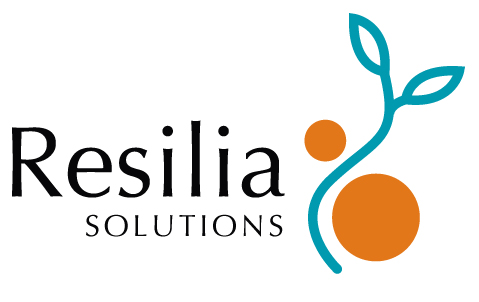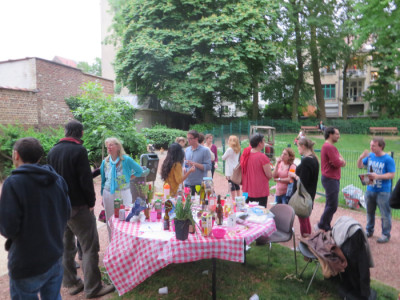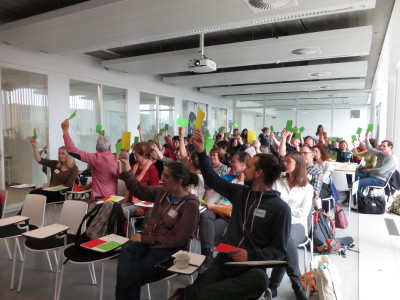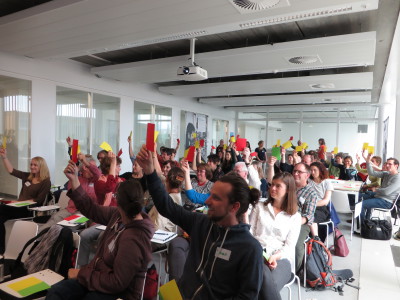… yet, we need to go beyond labelling: the wider the definition of social innovation the wider we can experiment”, stated by Fabio Sgaragli during the BoostInno network’s Summit in Paris on the 6-7-8 November 2017. Three days of intense visits and work showed a wide range of concrete projects of what social innovation is and can be. Fair enough, the network started by going through dozens of definitions before identifying that the concrete projects are more than a definition. As Piotr Wolkowinski, Lead Expert of the project, stated “what is important is the story telling. But the story needs to be interesting”. And indeed, over these three days, we went through very varied socially innovative projects from Paris and other cities of the network rich in learning and exemplification.
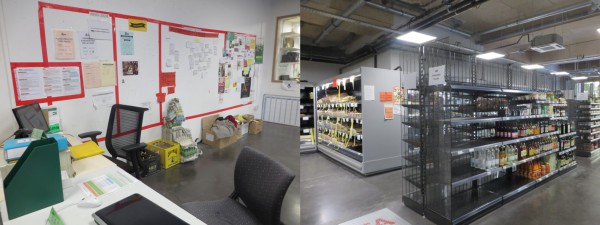
“Classical economy does not bring us the answers to what we need” (Antoinette Guhl, Deputy Mayor of Paris). Such answers are found in responsible consumption (La Louve food cooperative) or reduction of food waste (Le Chaînon Manquant collecting food surplus from events), circular economy projects (the Tale Me Lab proposing a service of children’s and pregnant women’s clothes renting) also combining it with local anchor in the neighbourhood (La petite Rockette with a ressourcerie, café and local initiatives), or increased carbon-free mobility with empowerment (Solicycle for learning to self-repair bicycles).
Continue reading